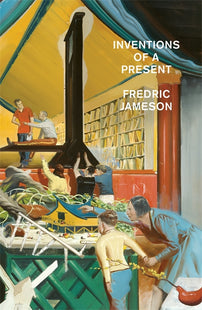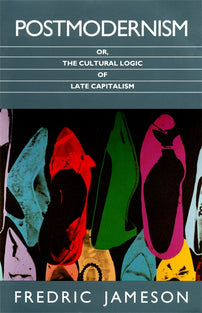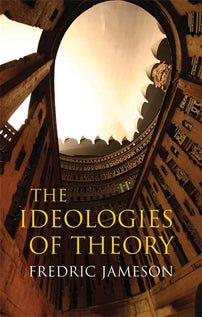Synchronic history
Kristin Ross writes about her relationship with Fredric Jameson and how his work has shaped her own thinking for part 7 of our Jameson at 90 series.

Fred Jameson saved my career a couple of times. The first time was by getting hired in French at Yale in the late 1970s where I was a depressed graduate student adrift in the quasi-liturgical ambiance of deconstruction, on the verge of dropping out. Jameson, who was known then for The Prison House of Language, was set to teach a (to me) ominous-sounding course called “The Naturalist Periphery” featuring lots of Gissing, and I decided to camp out and grab him at his first office hour to ask him to direct me in an individual study of Deleuze instead. He agreed, and I showed up every week or so to report on my reading of L’Anti-Oedipe. Often a cluster of male grad students was there in his office when I arrived and I would wait in the hall until their chinwag died down. Jameson’s presence changed Yale in many ways. It was not just that the faculty parking lot now graced a beat-up VW bug with a giant psychedelic peace sign (or was it a yin/yang symbol?) painted on its side. Or that for what was surely the first time in Yale’s history a woman nursing a baby—Susan Willis, Fred’s partner—could be glimpsed from time to time in a faculty office. For me what mattered most was the frank criticism Fred directed at my work. It was all well and good to produce a clever rhetorical reading of a literary text, complete with lots of post-structuralist tricks, but unless you could articulate (big word back then) that reading to either philosophy or to an historical framework, there wasn’t much of a point to doing it then, was there?
[book-strip index="1"]
Well, it wasn’t going to be philosophy. But it wasn’t until the mid-1980s when I read some of the essays Jameson was writing then that I got a glimpse of what was at stake. By that time, Fred and Susan had joined me as colleagues at UC Santa Cruz and the old VW with the yin/yang symbol could be seen chugging up High Street—yes, it’s really called High Street—to campus. Reading essays like “Pleasure: A Political Issue” (1983) and “Periodizing the Sixties,” (1984) alongside of texts by Henri Lefebvre and early essays by the Révoltes Logiques collective, showed me a way to begin thinking about and writing synchronic history. Benjamin Kunkle is, I think, right that Jameson’s multifaceted talents are best exhibited in the essay-form rather than a full length book, and these essays mattered to me more than, say, The Political Unconscious. In addition to showing me how a history of the present might be written in a way that hadn’t really been accomplished since Marx’s works on French history, these essays gave vivid testimony to the importance, especially at that time, of remaining faithful to the emancipations and excesses of a period like the long 1960s, in the face of something that nobody was calling neo-liberalism then, but that we all felt nevertheless to be the onset of a full-fledged counter-revolution or, at the very least, the beginning of what Elmore Leonard in Justified called “the hard times to come.”
Happy Birthday, Fred!
Kristin Ross
See all works by Frederic Jameson here. His new book, Inventions of a Present: The Novel in its Crisis of Globalization is out on May 7.
[book-strip index="2"]



